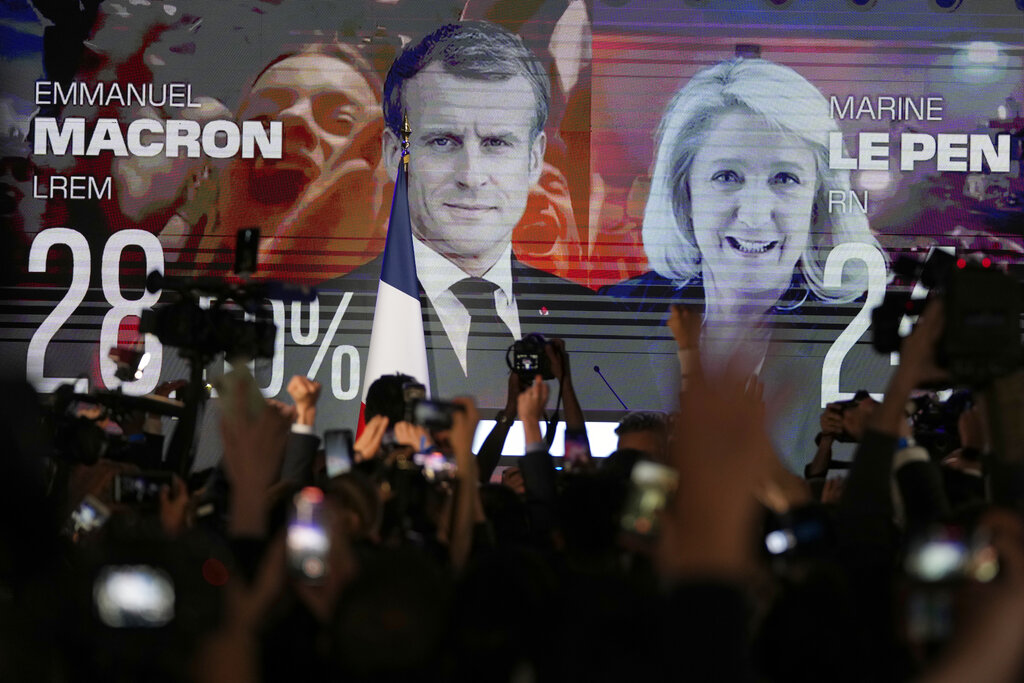French President Emmanuel Macron and his conservative rival Marine Le Pen will face off in the second round of the French presidential election in what promises to be a tight affair after Sunday’s vote produced no clear winner.
The French Interior Ministry’s latest figures showed the incumbent Macron received 27.6 percent of Sunday’s vote, while Marine Le Pen edged past left-wing candidate Jean-Luc Mélenchon with 23.4 percent and 22 percent respectively.
Populist Éric Zemmour took 7 percent while the center-right Valérie Pécresse obtained 4.8 percent, just short of the 5 percent required to have her campaign’s expenses reimbursed.
Both Macron and Le Pen managed a significant increase in their first round vote share compared to five years ago, when Macron achieved 24 percent compared to Le Pen’s 21 percent.
However, turnout was lower than expected with few people than usual voting in Paris, one of Macron’s strongholds during the 2017 election.
Because of his role as a mediator in the Russia-Ukraine conflict, Macron, who has been leading the polls consistently since his election five years ago, spent almost no time on the campaign and even announced his program just three weeks before the first round of elections. However, polls published in the last two weeks before the competition have already shown that the gap between the current president and his main rival, Le Pen, is steadily declining, so much so that the gap has fallen below the 3 percent margin of error.
The question now is how the candidates in the second round, due in two weeks, can mobilize their camps. Thibaud Gibelin, a French-born political analyst and guest lecturer at the Mathias Corvinus Collegium, said in an interview with our newspaper the other day:
“Le Pen has an important situational advantage, namely that she can count on votes to protest against the current system.”






